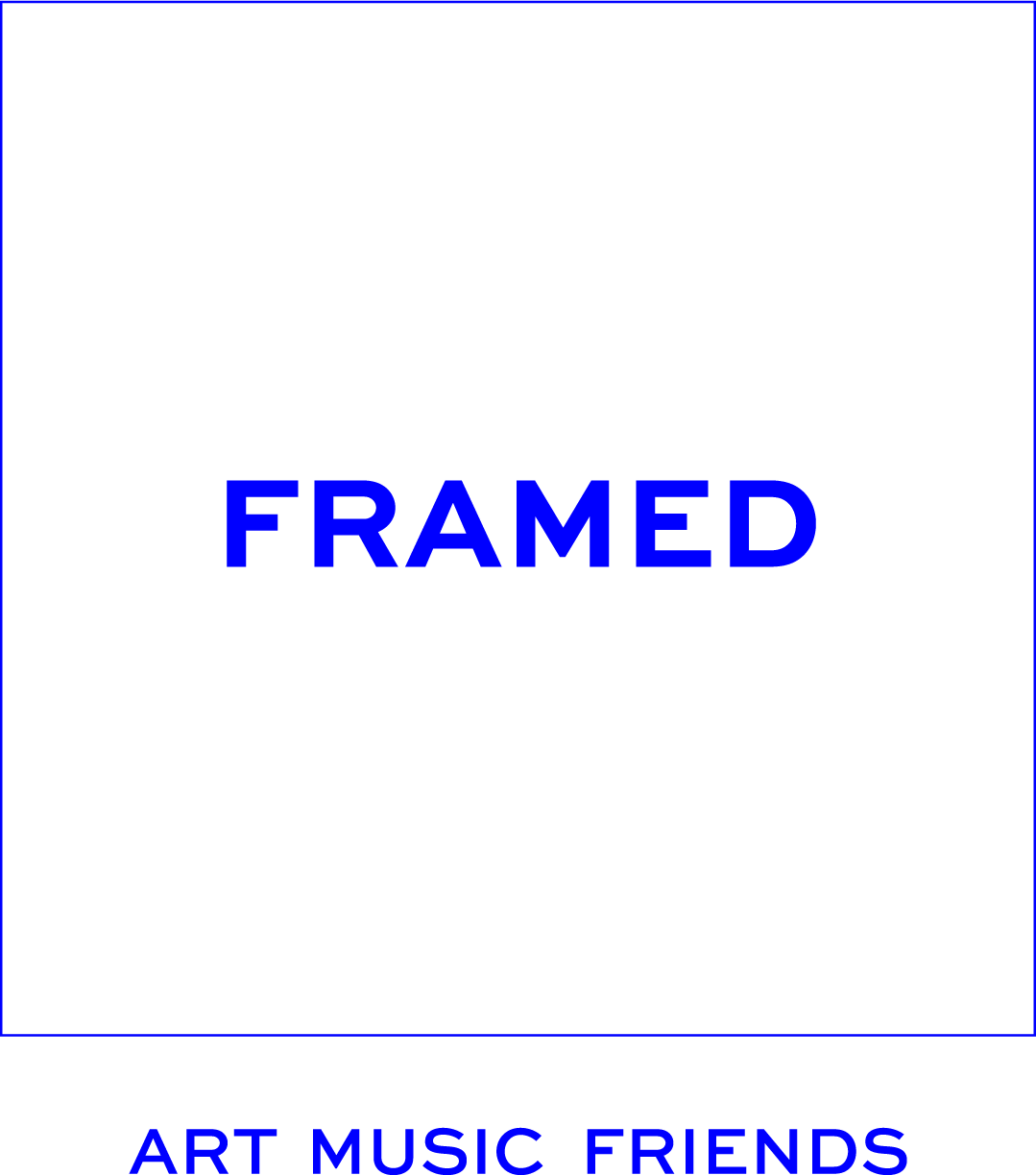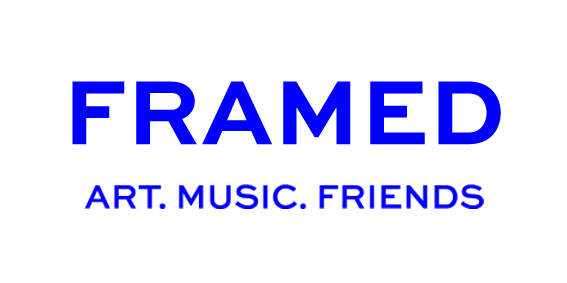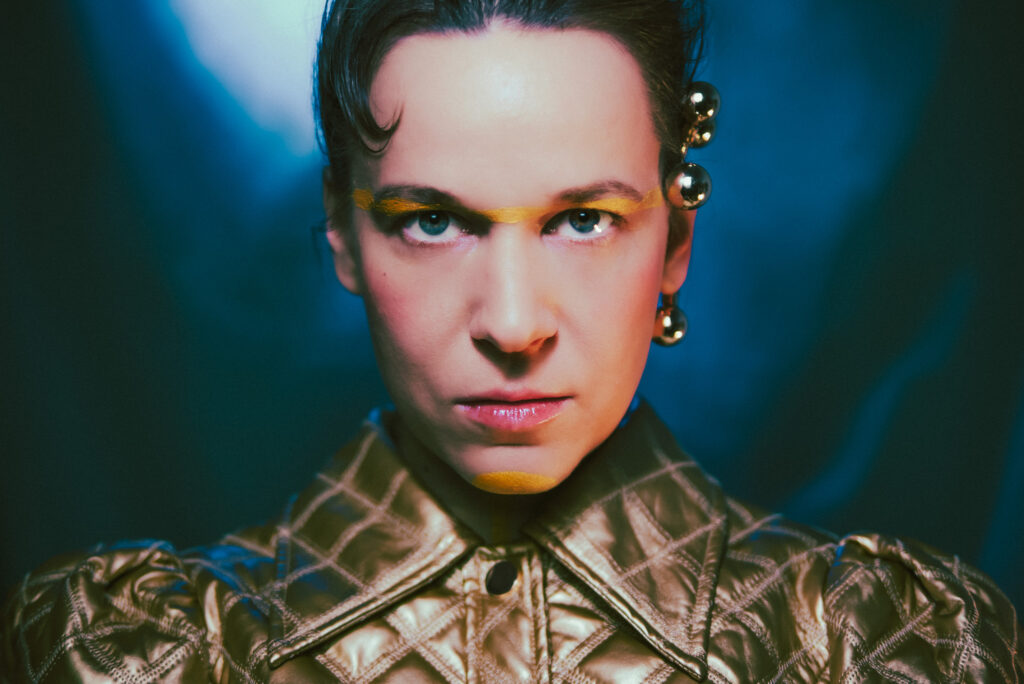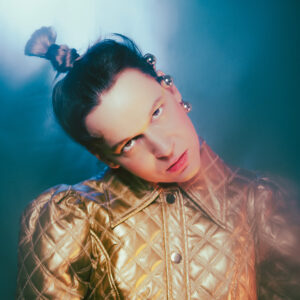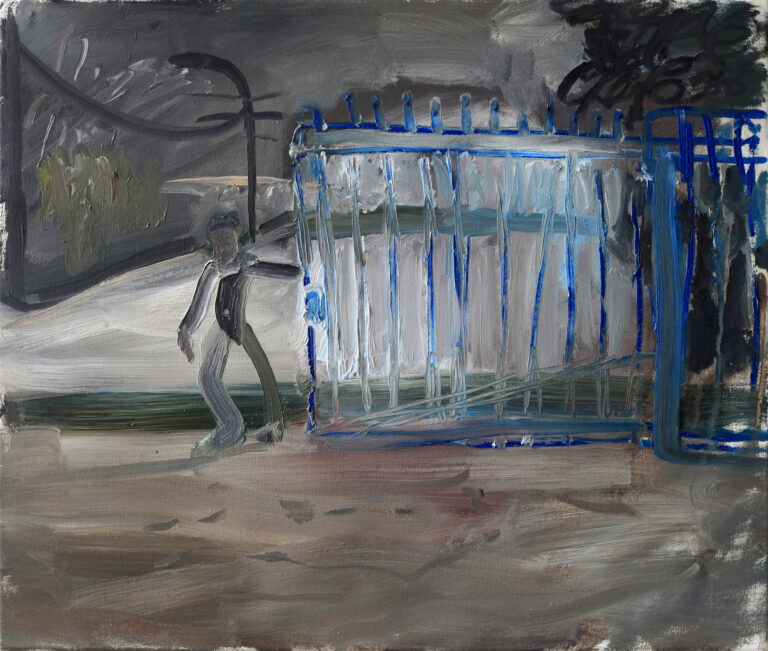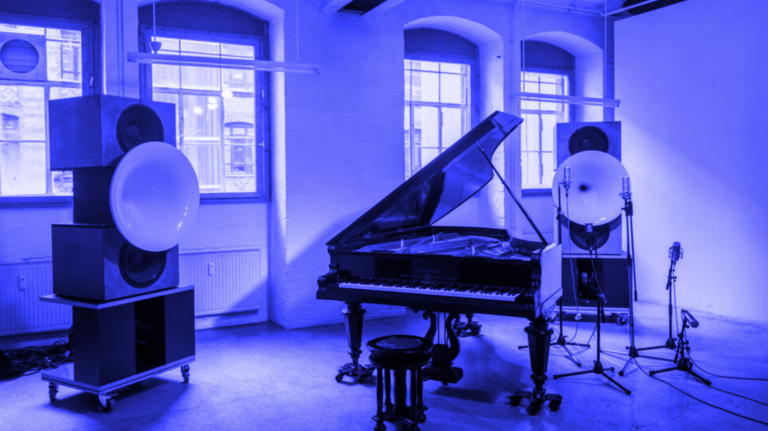“I was drawn to develop badass skills, impress everyone, and find a way to make music no one else would ever have done before.”
FRAMED: What is your motivation for playing music, what makes you wanna keep doing it, write the next song, next album, next show etc.?
KID BE KID: The motivation for playing music has changed a little over the years. It may sound dramatic, but I am now realizing that my life has been pretty painful, so I think I started to write songs to get rid of the pain. Also reflecting on what’s going on in the society around me has always been a reason for me to write.
Listening to musicians like Erikah Badu and Lauryn Hill inspired me to express what was going on in my mind and heart through my songs.
Later on, when I decided to become a professional musician, the pressure behind the business, the competition, and the difficulties of being seen as a musician enough to make a living determined the motivation part a little. I was drawn to develop badass skills, impress everyone, and find a way to make music no one else would ever have done before.
So, as a human, I felt as good and as valuable as my music was. At the moment it’s all going back to where it came from – purely expressing myself but with more knowledge about who I am – A very emotional, hypersensitive human. What can be a burden in life is I think at least a gift for making art. By being dedicated and honest to myself and the audience I can bring joy and inspiration to humans that are trying to get along in a capitalist world where the motivation of doing things is very often coming from the aim to get some benefit. I realized I could bring people together to have a peaceful night. And I must say, I also have so much fun stepping on the stage, feeling the light on my skin, playing the first notes, letting them fill up the room with creativity and hope, and enjoying this moment of now.
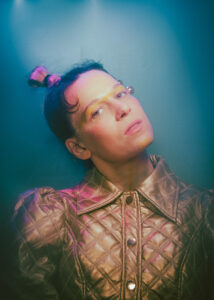
Back to where it came from – purely expressing myself but with more knowledge about who I am – A very emotional, hypersensitive human. What can be a burden in life is I think at least a gift for making art.
FRAMED: You have such a unique bag of skills, singing, playing and beatboxing. What was the path you took to end up with this musical vision?
KID BE KID: A varied path. Both my parents were professional classical musicians when I was a child. So I grew up with music from the very beginning, I could hear them playing in the theatres where they worked, and I was lucky enough to have piano and singing lessons at an early age. But I never really fell in love with classical music, at least not the kind of music I was forced to play. Nevertheless, it was the reason why I am now a professional musician and I am very grateful for that.
My path led me from listening to black music as a teenager to accidentally discovering jazz when I was 19. Soul, neo soul, hip hop and jazz would be the music I fell in love with. By the time I started studying jazz at university, I had already internalised the freedom of writing my own songs, improvising with harmonies, rhythms and melodies – creating instead of interpreting. So – on the one hand, you could say that I’m the best example of a white, privileged, well-educated person who took the academic route of learning to play jazz at a conservatory, so I’m taking a position on something that doesn’t belong to my culture and that came here through the long and not yet over history of colonisation. And that’s just a fact that I have to live with.
On the other hand, black music saved my life countless times when I was a teenager suffering from the daily verbal battles at home. My parents both lost their jobs at the same time and as a result there was depression and emotional pain in the house that I had to deal with. The existential anxiety in the house made me emotionally responsible far too early and had consequences so deep in my system that I will have to deal with them for the rest of my life. It’s not an excuse – I just try to explain why I am nowadays combining Neo Soul and Jazz with beatboxing coming from Hip Hop culture. By the way- once in a while you may hear a little glimpse of my classical influence as well so I’m kinda starting to find my peace with that part of me, too.
FRAMED: What is Kid Be Kid, the origin of the name, or a story that’s tied to it?
KID BE KID: I was looking for something playful. What were we like when we were little kids? Curious about life. Free from prejudges. Not always happy but easier to make happy. Crying or laughing when wanting to. Being honest because not knowing the codes of the society. “If we’d all speak the truth, would we really kill each other?” Maybe we would, but I’d still like more honesty in our world.
FRAMED: If you had a chance to collaborate with any musician alive or dead, who would they be and what kind of project would you make together?
KID BE KID: I don’t know yet. I admire so many and I don’t really know how to even think of collaborating with them. They aren’t gods or anything, but they all embody something so unique and unquestionable that I wouldn’t dare to put myself next to them. But if I’m just dreaming: To have Frank Ocean and Kaytranada as the producers of an album and learn their skills would be a dream. To sit next to Nina Simone and just listen to her when she is playing would be healing. To write a song together with James Blake and perform it with our synthesizers, two pianos and two voices would be unbelievable. To play a song of Little Simz and let her rap over me being the band.
I tend to combine something real with something unreal. To experience something that you can fully understand and feel understood in, feel at home in – and yet there’s something behind it that you’ll never really be able to explain.
FRAMED: Can you describe a bit of your creation process, how you work on and develop new material?
KID BE KID: I first write. You could say poems. I’m doing it everywhere. On trains, in my bed, in the park. Before I start making decisions about the music, I already say the poems out loud to see what tempo could be interesting for the song. Then, when I have a certain feeling and enough headspace for diving into the musical process, I start to compose the music and the poems become the lyrics. I start to record the new material and the production process then becomes part of defining the arrangement, choosing the sounds on the synthesizer, working more detailed on the rhythm of the beat, finding the right mood for the vocals and so on. I sometimes keep in mind how I would be able to perform the song live in the end, given that I’ll have to adapt to my setup of playing four instruments at the same time. But I often also don’t give a fuck and just keep on going with the flow and postpone the whole live issue till later.
FRAMED: You have more than a few beautiful videos for your music. How much do you think about the visual representation of your songs, when does it become a part of the creation?
KID BE KID: I do think about it a lot. But mostly only after I had finished the musical part. When organizing a video shooting – may it be a story-line-video or a live video – I do think about the intention of the song and the mood and try to figure out which visual concept would underline the meaning of the song. I think, like in poems and like in music, visual art can be very direct or metaphorical and both can be the right way to express something. It’s just important to be aware of what options you have and how you wanna play with it. I tend to combine something real with something unreal. To experience something you can fully understand and you feel understood in and feel at home in and still there is something behind you’ll never really gonna be able to explain. Maybe it sounds pathetic but isn’t this the magic of life?
